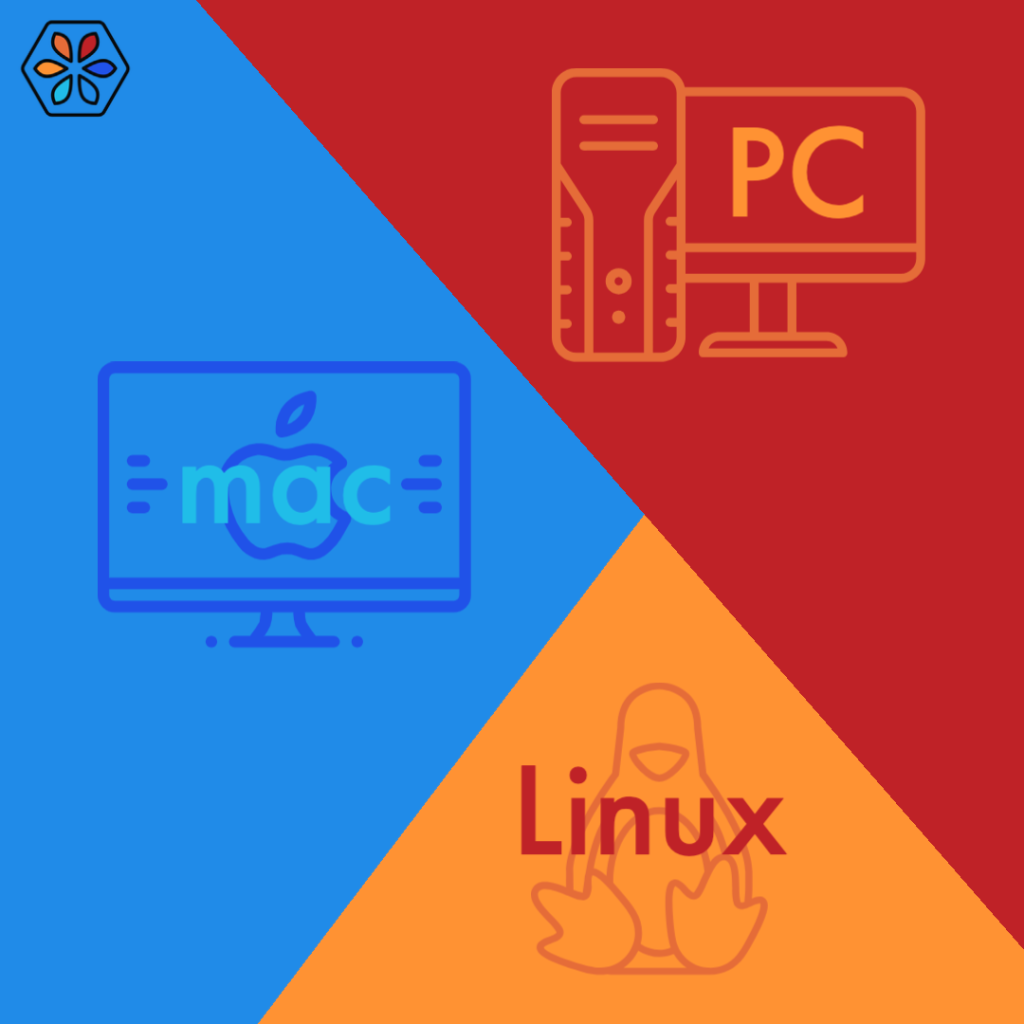
Picking the right computer and operating system for your needs involves juggling trade-offs and price points. And it's all dependent on your needs. If you are using it for correspondence and office productivity apps, that requires much less power than coding, or graphics, video production, or gaming.
The Mac, Windows, and Linux operating systems have their benefits and drawbacks, but what are the pros and cons of each, and what do our Polycotians think? We asked our senior developers, Devan Martin and Antonio Hernandez, and our founder and project manager, Jon Lebkowsky, what they believe.
MAC
Devan Martin: Macs are ridiculously overpriced hardware (unless you build a "hackintosh," but those are buggy). They are great for professionals who need something that works without having to tinker much. They are also great if you have an investment in the Mac ecosystem. Otherwise, it's just a fad now -- Macs are for the "cool" kids.
Jon Lebkowsky: I wouldn't say that Macs are overpriced. You can buy a basic PC for less than a basic Mac, but the prices are comparable if you want one that will do everything the Mac will do. And I say this as someone who owns and uses both Mac and PC!
Devan Martin: You are correct if you're buying a PC from Dell or HP, etc. I was referring more to my personal experience because I always build my own PCs. And what you can get for the same price point is not even close. But it might be worth the price difference when you factor in the 6+ hours it takes to assemble the machine and get it to boot up.
Jon Lebkowsky: It's definitely true if you build your own. My PC, configured for me by a relative, is cheap and powerful.
Benjamin Bradley: I'm a big fan of Mac for desktop/laptop. Since OS X came out, it has had a *nix core, meaning most Linux commands work out of the box, directly on the hardware, with no emulation/additional layers needed. It's a best-of-both-worlds, the power of Linux, and the mainstream support of a major OS. I recently started working with Windows 11 via CloudPC, and I'm impressed with the WSL (Windows Subsystem for Linux), which is very close. However, I'm still in situations where the Linux system crashes and needs restarting. Overall, the Mac provides a much more polished experience.
Jon Lebkowsky: I'll add that the M1 chip was a game changer - my M1 is a significant improvement over the Intel Mac, and I'm itchin' to get an M2 Macbook Pro one of these days.
Devan Martin: Yeah, the M1 Macbook Pro is great. I just got one this year, and the performance is excellent. I am still determining what magic went into making that piece of silicon. Also, the trackpad is the one thing Macs do better than anyone else. I have yet to come across a trackpad that works anywhere near as smoothly as the Macbook.
PC
Devan Martin: Windows is your best option if you're a gamer. Also, thanks to the new Windows subsystem for Linux, which gives you a more or less complete Linux environment to work with, it's my new go-to for development. However, it's a Microsoft product, so YMMV (your mileage may vary).
Windows wins me because it has a Linux kernel, and you can install any distro, just like any app from the Windows store. It's a game changer, unlike on Mac/Terminal, you're interacting with a container, not the base OS. So you don't have to worry about messing up your machine by installing and testing random packages. I highly recommend it -- it's the best of both worlds.
The most significant disadvantage with Microsoft is that I can't trust them not to push out an update that breaks something I depend on. But honestly, I was Team Mac up until WSL2 came out. The first version of WSL was a slow and buggy translation layer that would only work with specific commands. WSL2 introduced an entire Linux kernel, so it's comparable to MacOS in that regard.
Linux
Antonio Hernandez: I like Linux because it is a more hands-on approach. It has many advantages over other systems, and you have better access to everything. A downside is that everything is more complex, but I have always liked complexity.
Devan Martin: It's Open Source, so it's FREE, and 90% of all web servers are Linux-based, so if you're doing any web development, then you're going to have to interact with Linux at some point. But it's not the most user-friendly and may require some command-line knowledge to get the most out of the OS. Some distros are more suited to home use than others, and there are a million distros to choose from.
Pros and Cons
Advantages of Macs:
Macs are easy to use and accessible even to those less tech-savvy.
Macs are seamlessly integrated with iPhones/iPads, making sharing files across devices a breeze.
Mac delivers consistent performance and reliability.
For the most part, Macs have solid security protocols, which offer more protection against malware.
Drawbacks of Macs:
They offer limited upgradability -- it's relatively impossible to customize your Mac and add additional memory or different graphics cards.
Macs generally have a higher upfront cost than other options.
Mac users face limited hardware customization options compared to other platforms, potentially affecting customization based on specific needs.
Macs can sometimes be challenging to repair or upgrade by third-party services, necessitating reliance on their official repair services.
Advantages of PCs:
PCs offer diverse hardware options, allowing you to find a setup that suits your needs and preferences.
You can find many capable and affordable PCs for under $500, making it accessible for budget-conscious users to get a decent machine.
Building and upgrading PCs is straightforward for many people, allowing you the flexibility to enhance your system as needed.
PCs are well-suited for gaming.
A wide range of PCs are on the market, ensuring you can tailor your system to match your requirements.
Drawbacks of PCs:
PCs can sometimes exhibit inconsistent functionality due to the vast array of hardware and software combinations conflicting.
PC updates occasionally cause problems with essential programs, leading to compatibility issues.
PCs from lesser-known manufacturers might have inconsistent quality and reliability, so choosing a reputable brand is essential.
PCs are more prone to malware, spyware, and ransomware attacks, which can compromise your security and data.
Advantages of Linux:
Linux offers a wide selection of distributions, allowing you to choose the one that suits your preferences.
Linux is built on open-source principles, promoting collaboration and innovation within the community.
Linux provides numerous free and low-cost choices, making it a budget-friendly option.
Linux enables hands-on customization, empowering you to tailor your system to your exact needs.
Linux is often regarded as one of the most secure operating systems, offering a strong defense against vulnerabilities.
Drawbacks of Linux:
Many popular apps and well-known brands may not be readily accessible on Linux, potentially impacting software compatibility.
Sometimes, compatibility problems with specific file formats can arise when using Linux.
Finding pre-built machines with Linux installed is a rarity, potentially requiring more effort to locate suitable hardware.
Linux can present complexity for users with average technical skills, which might lead to a steeper learning curve.
Our developers tend to lean towards Mac and Linux for their work tasks, and PCs for gaming and specialized development work, and each of these options has its valuable role to play. By recognizing your specific requirements and considering our insights, we hope this can help you make informed decisions about your computing needs.
- Log in to post comments


